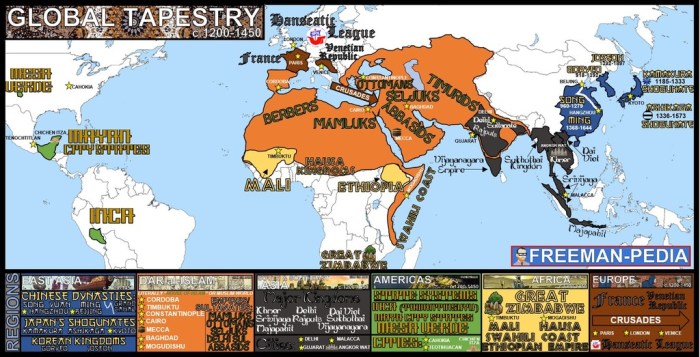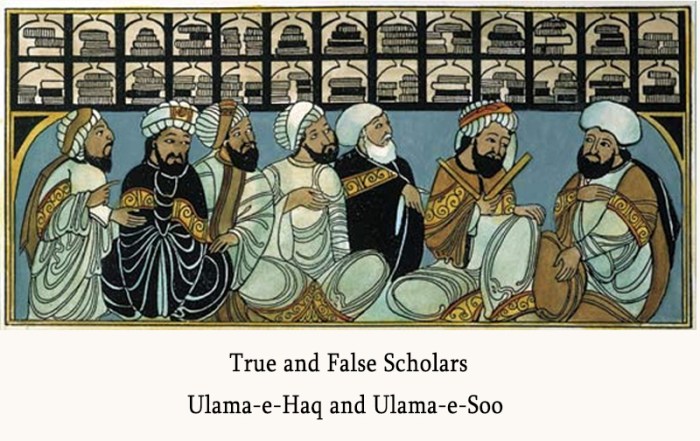Ulama definition AP World History delves into the multifaceted world of Islamic scholars, exploring their origins, functions, and profound impact on Islamic society and beyond. From their role as religious guides to their involvement in political affairs, the ulama have played a pivotal role in shaping the course of Islamic history.
The origins of the term “ulama” and its etymological roots provide insights into the nature and significance of these scholars. Their functions and responsibilities within Islamic society, including religious guidance, education, and social welfare, highlight their central role in preserving and interpreting Islamic law and tradition.
1. Ulama
Definition and Overview

Ulama, a term derived from the Arabic word “alim,” which means “learned one,” refers to Islamic scholars who possess specialized knowledge and expertise in religious matters.
Originating from the root word “ilm,” meaning “knowledge,” the term ulama denotes individuals who have dedicated their lives to the study and interpretation of Islamic scriptures, law, and tradition.
Within Islamic society, ulama hold a significant position as guardians and interpreters of religious knowledge. They are entrusted with the responsibility of providing religious guidance, preserving Islamic heritage, and ensuring the continuity of Islamic practices and beliefs.
2. Historical Development of the Ulama
The emergence of ulama can be traced back to the early days of Islam, with the Prophet Muhammad (PBUH) serving as the first and foremost exemplar of an Islamic scholar.
During the early Islamic caliphates, ulama played a crucial role in developing and codifying Islamic law and jurisprudence. They established religious schools and universities, becoming centers of learning and intellectual discourse.
Over time, the ulama evolved into a distinct social and intellectual class, with their influence extending beyond religious matters into areas such as politics, education, and social welfare.
3. Functions and Responsibilities of the Ulama

Ulama perform a wide range of functions and responsibilities within Islamic society:
- Religious Guidance:Ulama provide religious guidance to the Muslim community, issuing rulings (fatwas) on various aspects of Islamic law and practice.
- Education:Ulama establish and teach in religious schools and universities, transmitting Islamic knowledge to students and future generations.
- Social Welfare:Ulama engage in charitable activities, providing assistance to the poor and needy, and promoting social justice and cohesion.
- Preservation and Interpretation of Islamic Law:Ulama are responsible for preserving and interpreting Islamic law (Sharia), ensuring its continuity and relevance in changing times.
4. Ulama and Political Power
The relationship between ulama and political power has varied throughout Islamic history:
- Advisory Role:In some periods, ulama served as advisors to rulers, providing guidance on religious and legal matters.
- Political Influence:In other instances, ulama played a more active role in politics, holding government positions or even leading political movements.
- Independent Stance:At times, ulama maintained an independent stance, criticizing rulers and advocating for the rights of the people.
5. Ulama and Social Change: Ulama Definition Ap World History
Ulama have played a significant role in both promoting and resisting social change in Islamic societies:
- Conservative Influence:Some ulama have resisted social change, advocating for the preservation of traditional Islamic values and practices.
- Progressive Influence:Other ulama have embraced social change, reinterpreting Islamic teachings to address contemporary issues and promote social justice.
- Agents of Reform:Ulama have often been at the forefront of social reform movements, advocating for education, women’s rights, and economic development.
6. Ulama in the Modern World
In the modern world, ulama face new challenges and opportunities:
- Globalization and Technology:Ulama must navigate the impact of globalization and technological advancements on Islamic thought and practice.
- Interfaith Dialogue:Ulama engage in interfaith dialogue and cooperation, promoting understanding and harmony among different religions.
- Social Activism:Ulama continue to play an active role in social activism, addressing issues such as poverty, inequality, and environmental degradation.
Answers to Common Questions
What is the primary function of the ulama in Islamic society?
The ulama serve as religious guides, educators, and guardians of Islamic law and tradition, providing spiritual guidance, preserving knowledge, and ensuring the preservation and interpretation of Islamic principles.
How have the ulama influenced political power throughout history?
The ulama have played significant roles in shaping political events, from advising rulers to leading revolutions. Their influence has varied depending on historical context and the relationship between religious and political authority.
What are the challenges facing the ulama in the modern world?
The ulama face challenges such as adapting to globalization, responding to social change, and maintaining their relevance in a rapidly evolving world while preserving Islamic tradition.